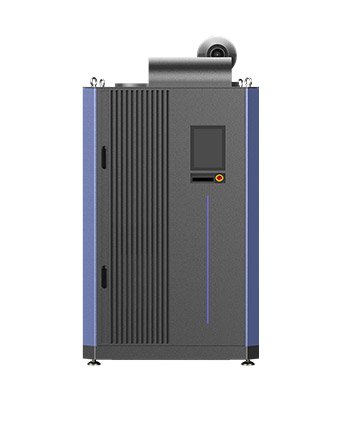Food/Beverage/Brewing

100% PURE AIR
Amazing cost saving

Unmanned Process Demonstration
● Fermentation process
Turbowin’s compressed air reveals its true value and grandeur as 100% pure air in the fermentation process of the food and beverage and brewing (F&B) industries. Specifically, yogurt, cheese, natto, cheonggukjang, miso, vinegar, makgeolli, sikhye, citric acid, etc. It supplies bacteria with clean, high-quality oxygen, which is essential for the fermentation process to produce food ingredients. Oil, which can come out in any way from outdated/low-cost products, will seriously negatively affect the optimization of bacterial reproduction, resulting in a poor quality product and contaminating the final product, which in turn will have a very bad effect on the health of consumers and the reputation of the manufacturer.
● Powder transfer
Turbowin’s clean compressed air exhibits overwhelming performance and quality in the powder transfer process in the food and beverage and brewing (F&B) industries. Specifically, it is used in the manufacturing process by moving powder raw materials required for food and beverage and brewing, such as milk powder, lactic acid bacteria powder, and cocoa powder, through a pipe. If you use Turbowin’s 100% PURE AIR, you can prevent the precious powder raw material from being contaminated with oil, and the inflow of humidity, temperature, and impurities, as well as omission/defect, and keep the purity of the powder safe.
● Cleaning air
Compressed air from Turbowin’s turbo compressor and turbo blower is applied to clean glass bottles, PET bottles, packaging materials, equipment and molds. Oil contained in compressed air discharged from old/low-grade products not only alters the taste and flavor of food, beverages and brewed products, but also threatens the health of consumers. Turbowin’s turbo compressor and turbo blower are essential to completely eliminate this risk.
● Filling glass bottles & aluminum cans
Turbowin’s 100% PURE AIR is applied to clean the line after moving beer and other brewed products from the conditioning tank to glass bottles and aluminum cans. You can aim to keep your lines and tanks free from contamination in your process and keep them clean.
● Packaging/Labeling
Compressed air is used to control valves and actuators in automated lines used in processes such as packaging, labeling, etc.
● Save
In typical food and beverage and brewing industrial processes, compressed air is separated into oxygen (O₂) and nitrogen (N₂). Nitrogen is used to preserve the original quality of food and beverages and brewed products inside packaging containers to prevent oxidation from occurring in large storage facilities and transportation. Therefore, the compressed air used in these processes must be supplied as 100% pure air that does not contain any oil. On the other hand, since oil has a risk of damaging and destroying the expensive filter membrane of the PSA process, Turbowin’s turbo compressor and turbo blower are absolutely necessary.
● Aeration and spraying
Compressed air is sometimes added to the liquid to increase oxygen saturation. Specifically, compressed air is applied to supply oxygen to a deeper water depth or to oxidize sediment at a farm in the clean southern seas of Korea where anchovy and mackerel are grown. Fish such as anchovies and mackerel are very sensitive to even a small amount of oil, and if contaminated, they die immediately.
● Automated plant process
Compressed air is applied to control valves and actuators in automation equipment related to packaging and filling. Using Turbowin’s 100% PURE AIR compressed air ensures the safety of sensitive food and beverage and brewing products, and prevents failure of automation line components.
● Cooling and spraying
Compressed air is also used to lower the temperature of oven-baked solid foods and liquid beverages and brews. If the discharged air is contaminated with impurities and oil discharged from old/low-grade products, this can cause serious defects and damage to the final product, resulting in large claims such as production loss, consumer dissatisfaction and recall.
● Wastewater treatment
Wastewater used in food and beverage and brewing plants must be treated before returning to the circulation system to minimize environmental contamination. The air required for this treatment must of course be oil-free. Otherwise, the water may become contaminated again.




